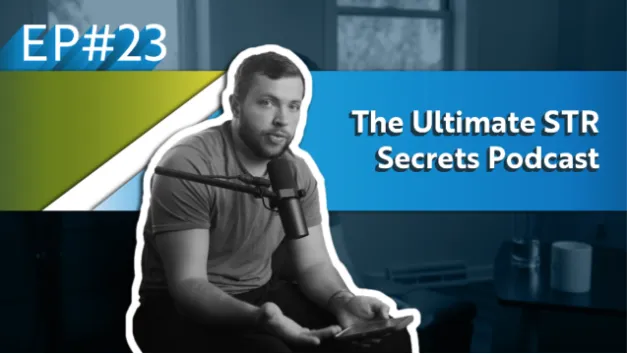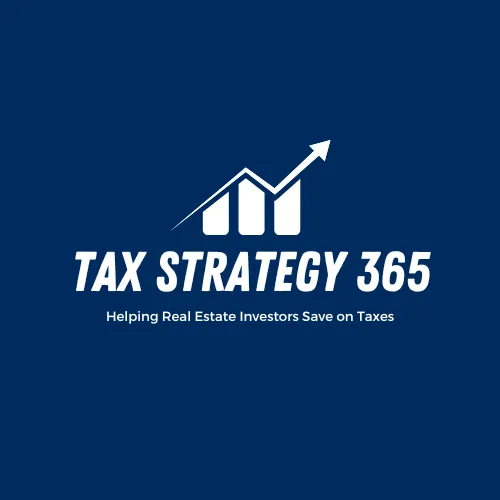Latest blogs and articles
Leading you to a better financial future.

ULTIMATE STR Secrets
ULTIMATE STR Secrets
Do you have Short Term Rentals (STRs) in your portfolio? If so, you should know that Short Term Rentals are the best type of real estate investment because you're able to have a W-2, you're able to own a business, and you're still able to harness a lot of the tax benefits that come with owning rental real estate.
By only meeting a few basic requirements - ie. you do not have to qualify as a REPS (Real Estate Professional Status) - you can write off thousands of dollars in tax liability against your W2 or other incomes. Continue reading to learn how to qualify, which strategies are available to properties you choose, and things you should be aware of to boost your bottom line.
How to Qualify Short-Term Rentals for Tax Benefits
There are several prerequisites that you must meet in order to qualify your STR for tax benefits:
Purchase and place into service the short-term rental
Establish an average guest stay of 7 days or less. If you add up the total number of days on Airbnb or VRBO direct booking divided by the number of unique stays, that has to be 7.0 or less to qualify.
Materially participate in the property more than anyone else for at least 100 hours (ie. cleaner, contractor, and/or handyman). This means you have to be the one that self-manages the property that's putting in more work hours than anybody else.
Perform a cost segregation study. You need to be able to extract out the depreciation that's on the property in order to be able to take it against your income.
Note: If you're not able to prove material participation, it's not the end of the world because remember, real estate is a passive activity. And so passive activity gains can always be offset with passive activity losses.
Why are Short-Term Rentals so Powerful for Tax Savings?
There are many reasons why STRs are a great choice for tax savings and better cash flow. Here are two main reasons:
Marginal tax brackets: For someone in a 32% Tax Bracket (Single Person making up to $215,000) and they have $50,000 of depreciation they are saving $16,000 in Federal Income Tax. $100,000 in depreciation would warrant $27,000 in Tax Savings.
Down payment: The Equity Down Payment is already the biggest investment, so performing the necessary steps to use it as a loss ensures the most tax benefit.
What should you look for in a STR from a tax perspective?
So what should you look for in a short term rental from a tax perspective? Here’s a few pointers:
Invest in areas with high building values and little to no land because you're not able to depreciate the portion of the building that is considered land.
Newer properties (anything built after 1990) will tend to have more depreciation because of the components in these newer buildings compared to an older home.
Look at condos and townhomes where they don't own the land that the building sits on.
Avoid coastal areas where the property value is high. Worst areas in the USA include Destin/30a, California, and Southern Texas
Before you even purchase a property, you can go on the county assessor website specific to where you're investing. You can research how much of the value is being assigned to the building and how much of it is being assigned to the land.
Reminder: Don’t buy a property for the tax benefits but if you need to, pick the one with more depreciation!
Advanced Strategies
When the market is in a downturn (bookings are down, interest rates are up, and some investors are running into cash flow problems) taking advantage of potential tax breaks can be a HUGE cash flow play, enabling your investment portfolio to weather the storm.
For those with a basic understanding of STR tax liability, the following strategies are available:
Taking your STR’s accelerated depreciation against your income will drop your tax bracket, enabling you to do other wealth building strategies (such as a Roth IRA conversion).
Your income also sets the standard for the long term capital gains bracket. And so as a married couple, if you make less than $123,000 a year, your long term capital gains are tax free up to that amount. So you could have a scenario where you buy a short term rental you're able to significantly reduce your W-2 income and it's going to also allow you to capitalize on selling some of your other assets or contributing to Roth accounts.
If you know that you are going to save money in federal income tax withholdings, consider not withholding from your paycheck anymore in order to free up cash flow. You can do this by going exempt with your employer or if you file for more dependents.
Take advantage of bonus depreciation, which is still at 100% for property placed into service in 2022. However, bonus depreciation will phase down to 80% In 2023, so it’s important to act now to receive the full benefit.
Real Life Example
Watch the podcast for a demonstration of how to use the Short Term Rental Calculator to calculate potential tax benefits of your short-term rental property.
As you can see, short term rentals are a great way to offset taxes and increase your cash flow. By implementing the strategies mentioned in this overview and the LiveLikeaCPA podcast, you can free up more cash for more financial opportunities.
Subscribe to the LearnLikeaCPA podcast for everything you need to know about real estate, tax strategy, and personal finance. Whether you're a real estate investor looking to scale your portfolio, or you're an individual wanting to take your financial freedom journey to the next level, Learn Like a CPA is the podcast for you.
ULTIMATE STR Secrets
Join my Facebook group with over 9,000 real estate investors!

Choose Your Journey to Tax Excellence
Journey 1
Building a Tax Advisory & Consulting Practice
Scale, streamline, and systemize your advisory business.
Turn compliance clients into year-round advisory opportunities while mastering operational efficiencies for sustainable growth. This track covers pricing, hiring, marketing, and client engagement essentials to help you build a practice you love.
WHAT YOU’LL LEARN:
Crafting solid engagement letters and pricing models.
Transforming compliance clients into year-round
partners.
Marketing
strategies that drive consistent growth.
Recruiting and training the right team to scale your business.
Bonus:A Power Checklist for the ultimate year-end tax planning session.
Journey 2
Tax and Legal Foundations: Core Strategies for All Levels
Master the fundamentals that drive financial success.
Perfect for business owners and advisors, this track delivers essential insights on asset protection, tax planning, estate strategies, and IRS compliance.
WHAT YOU’LL LEARN:
Unlock estate planning with Revocable Living Trusts.
Maximize retirement savings through Solo 401(k) plans.
Real estate strategies: Short-term, long-term, and self-rentals.
Learn asset protection that actually works.
Navigate IRS resolution with confidence and ease.
Journey 3
Advanced Insights: Unlock Complex Tax Strategies
Top-tier strategies for high-value clients.
Designed for experienced professionals, this track offers in-depth guidance on prime tax strategies, entity structuring, and payroll solutions. Gain the insights needed to handle complex business scenarios with confidence.
WHAT YOU’LL LEARN:
Report multi-entity structures with Forms 1065 & 1120S.
Maximize tax savings using Bonus Depreciation & Section 179.
Seamlessly relocate clients to tax-free states.
Navigate business sales and acquisitions smoothly.
Use 105 Plans to save clients on healthcare costs.

2024 Learn Like A CPA. All rights reserved.